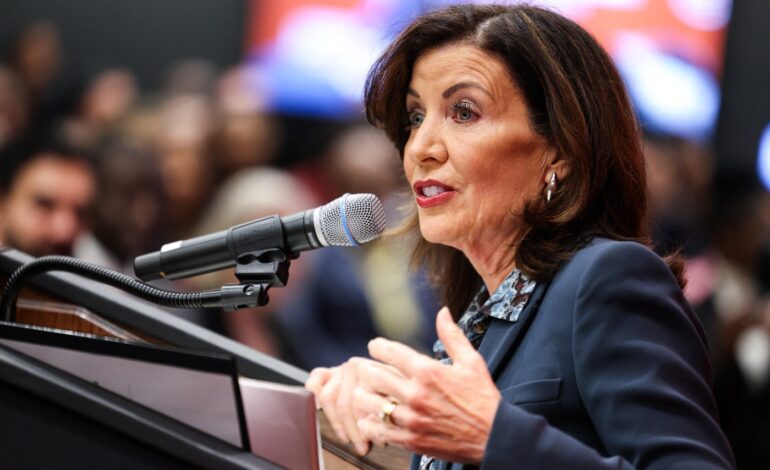Hochul Approves 24-Mile Gas Pipeline to Bolster Energy Supply

New York Governor Kathy Hochul has authorized the construction of a 24-mile natural gas pipeline known as the Northeast Supply Enhancement (NESE) pipeline. This decision aims to address potential energy shortfalls and prevent blackouts in the state, which has faced criticism for its slow progress in reaching clean energy goals set in 2019.
Balancing Immediate Needs with Long-Term Goals
The NESE pipeline, previously criticized by Hochul during the state’s push for clean energy, has garnered support from both business and labor groups. While the transition to renewable energy sources is crucial, this pipeline represents a necessary short-term measure to ensure reliable energy supply for millions of New Yorkers.
Hochul’s administration acknowledges the importance of moving away from fossil fuels, recognizing the real threats posed by climate change. The state is also exploring other energy technologies, including wind, solar, and nuclear power, as part of a broader strategy to enhance energy independence.
Despite the focus on renewable energy, the decision to proceed with the NESE pipeline reflects an understanding that immediate energy demands must be met. This pragmatic approach recognizes that the transition to clean energy is not happening fast enough to eliminate reliance on natural gas.
Energy Demand and Future Risks
The urgency of this decision is underscored by reports from the New York Independent System Operator, which indicates that downstate regions could face significant energy shortages in the coming years. These shortages could lead to rolling blackouts, particularly during peak summer months when demand surges.
The operator’s findings highlight that without immediate action, energy deficiencies could result in outages lasting several hours.
As the state grapples with climate goals, it is essential to balance these aspirations with the reality of current energy needs. The NESE pipeline is not an endorsement of fossil fuels but a recognition of the gap between current capabilities and future aspirations.
Critics have raised questions about the continued operation of the Greenidge cryptocurrency plant, which relies on gas-fired power. While exceptions to the 2019 climate law may be justified for public benefit, the long-term implications of such decisions warrant careful consideration.
As New York aims for a future where renewable energy can meet and exceed demand, the approval of the NESE pipeline serves as a reminder of the complexities involved in transitioning to a cleaner energy landscape. The state must navigate these challenges thoughtfully, ensuring that the needs of its residents are met while pursuing ambitious environmental goals.






